Malvertising campaign targets Americans through major websites including BBC and New York Times

Top news websites including the BBC, the New York Times and MSN were hit over the weekend by a co-ordinated malware campaign. Delivered through the advertising networks used by the sites, the malvertising attack aimed to install ransomware on victims' computers.
On-site ads are far from loved, hence the prevalence of ad-blocking tools. But as well as being an annoyance, online ads can also pose a serious security risk -- something highlighted by this attack. The infected ads redirected people to servers hosting the Angler exploit kit and was engineered to target US-based web users.
Limiting encryption affects security and competitiveness
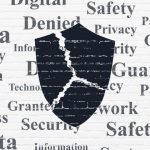
The Information Technology and Innovation Foundation (ITIF), a nonpartisan research and educational institute and policy think tank, today became the latest to come out and urge the US government not to limit the commercial use of encryption.
In its new report, entitled Unlocking Encryption: Information Security and the Rule of Law, co-author Alan McQuinn -- an ITIF research assistant -- argued that restricting encryption for use by law abiding citizens and businesses would reduce overall security and be ineffective at keeping encryption out of the hands of terrorists.
Encrypt all the things! Facebook, Google and WhatsApp to increase privacy and encryption

Privacy and security has always been a hot topic, but never more so than in recent months. The Apple/FBI case has really brought things to a head, enlivening the debate between privacy and security advocates, and those who side with the government. As Apple fights to prevent the FBI from accessing the San Bernardino shooter's iPhone, Facebook, Google and others are looking to increase encryption and lockdown user data even further.
The Guardian has learned that a number of Silicon Valley companies are working on ultra-secure encrypted messaging systems. With President Obama having made a sideways reference to supporting the inclusion of backdoors for government, Facebook is planning to not only bring encryption to Whatsapp's voice messages, but also to bolster the security of Facebook Messenger.
Only collaboration will solve the encryption dilemma

"They who can give up essential liberty to obtain a little temporary safety deserve neither liberty nor safety". So goes the quote from Benjamin Franklin, one of the Founding Fathers of the United States, in 1755. Little did he know that over 250 years later, his words would be frequently cited in one of the most complex debates of modern times.
In a world where data is collected, shared and sold as the norm, the liberty vs. security question has never been so relevant. The topic has been brought into the public eye by the UK Home Secretary’s draft Investigatory Powers Bill -- or Snoopers’ Charter -- and honed-in on the issue of encryption. More specifically, whether government agencies should be given the power to access encrypted, private communications, by forcing service providers to hand them over.
Telegram gets major 'Supergroups' update

When it comes to cross-platform chat, I used to be a huge proponent of Skype. Since Microsoft's offering is on a number of platforms, it made sense. Unfortunately, the company didn't keep up with quality, letting Skype get stale. Even worse, it has seemingly abandoned its Linux development, making it a non-starter for many.
Telegram is emerging as one of the best cross-platform chat solutions, being available for Windows, Android, iOS, Ubuntu, etc. Best of all, it is constantly being updated. It is beautiful and clearly cared for. Not to mention, it offers encryption -- something very important in today's security climate. Today, one of its killer features, Supergroups, gets a major upgrade. Yes, Telegram is getting even better.
Privacy and security killer: Obama supports backdoors to bypass encryption

The on-going battle between Apple and the FBI has brought encryption and security to the fore once again. After remaining silent on the subject for some time, President Obama -- speaking at SXSW -- said that he was opposed the idea of encryption mechanism that are so strong it prevents governmental access.
"If technologically it is possible to make an impenetrable device or system where the encryption is so strong that there is no key, there's no door at all, then how do we apprehend the child pornographer, how do we solve or disrupt a terrorist plot?" he wondered aloud, his almost rhetorical question playing neatly on two of America's biggest fears. He suggested that security keys should be made available to third parties, saying "you cannot take an absolutist view" when it comes to balancing security and privacy. But Obama has a solution: backdoors.
Justice Department accuses Apple of false rhetoric, pooh-poohs privacy concerns
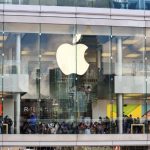
Ahead of the hearing due to be held on 22 March, the Justice Department has lashed out at Apple in its latest response to the company's refusal to unlock the San Bernardino iPhone. Playing an emotional game, the DoJ says "Apple deliberately raised technological barriers that now stand between a lawful warrant and an iPhone containing evidence related to the terrorist mass murder of 14 Americans."
It says that only Apple is able to remove the barriers that are currently in the way, "and it can do so without undue burden". Apple has already made it abundantly clear that it will not help the FBI in creating what it describes as a backdoor into the iPhone at the center of the case.
FCC's Tom Wheeler wants to protect internet users' privacy by limiting ISPs' personal data usage
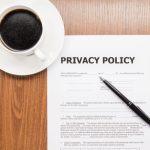
The chairman of the Federal Communication Commission has put forward a set of proposals to protect internet user's privacy. Tom Wheeler wants to place limits on how ISPs are able to use customer data in much the same way that phone companies are regulated.
The amount of unencrypted data ISPs have access to which can be used for advertising and marketing worries Wheeler. The FCC already governs how phone companies can use and resell customer data, and he believes the same rules should be applied to ISPs. More than this, he wants to empower customers so they can choose precisely how their data is used.
Apple says FBI case is the start of a slippery slope to mass surveillance via iPhone
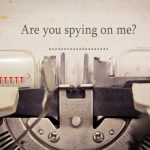
The battle between the FBI and Apple over access to the San Bernardino shooter's iPhone is turning into little more than a battle of wills. Both sides are using the case to make a point; Apple posits that unlocking the phone would set a dangerous precedent, the FBI says not unlocking the phone amounts to aiding terrorists.
There have been heavy words thrown from both sides, and the latest round of blows sees Apple claiming that the FBI could follow up its phone unlocking demand with a demand to switch on iPhone cameras and microphone for the purposes of spying on users. "Where will this stop?" asks Eddy Cue. "Some day, someone will be able to turn on a phone's microphone. That should not happen in this country".
The FBI wants you to think Apple is a terrorist sympathizer
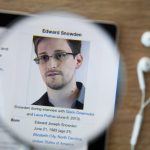
Speaking at the Common Cause Blueprint for a Great Democracy conference in Moscow via video link, Edward Snowden gave tech writers around the world an excuse to swear in headlines. Dismissing the FBI's claims as 'bullshit', the former NSA contractor says that Apple's involvement is not needed for the law enforcement agency to unlock the San Bernardino shooter's iPhone.
Snowden is not alone in decrying the demands being made by the FBI that Apple should create custom firmware to allow it to bypass the lock screen of the iPhone at the center of the terrorism case. He's one of a growing band of people convinced that the FBI is using the San Bernardino as a PR exercise. Apple has been criticized for being unhelpful, but more than this, the FBI is painting a picture that shows Apple as a terrorist sympathizer.
FBI should break Apple's encryption and keep it a secret

At the end of last month, Apple released a letter to its customers protesting about a US court order that could force the company to give the FBI a back door entry to individual iPhones. The case has brought the debate about government access to personal data and the protection of civil liberties to the fore once again. It has also made society and industry look more closely at the mechanics of data encryption and ask what makes the technology effective.
At its most basic, encryption provides a layer of protection for data at every stage of its journey from sender to recipient. If anyone tries to intercept or access the data without permission, they find themselves with a screen full of unintelligible gobbledygook. But encryption is only strong if there are no weak links in the chain. Apple argues that the FBI’s court order requesting a back door into its OS (Operating System) would force the company to create such a weak link in its encryption. This would undoubtedly speed up investigations of high profile crimes, but would come at high cost to the millions of law abiding iPhone users.
GCHQ: US and UK tech firms need to work together to solve encryption challenges
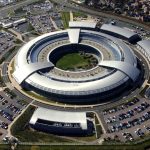
The head of GCHQ, Robert Hannigan, has called for greater co-operation between tech companies and governments. Speaking at the Massachusetts Institute of Technology, Hannigan referred to the "highly charged atmosphere" surrounding the encryption debate in a barely-concealed reference to the on-going battle between Apple and the FBI.
He said that in the coming months Prime Minister David Cameron will set out plans to improve the relationship between tech companies and intelligence agencies. He was at pains to stress that the controversial snooper's charter (or Investigatory Powers Bill) would not be used as an excuse to allow governmental spying or to introduce a ban on end-to-end encryption.
Security pros believe an encryption backdoor is open to abuse

The Government wants backdoor access to our devices so that it can protect us from terrorists and defend matters of national security. Even if its intentions are good, there are people out there that would abuse such a feature, security professionals attending the RSA conference agree.
Endpoint protection and response, security and compliance solutions company Tripwire surveyed 198 security professionals at the RSA Conference 2016 in San Francisco. Out of those surveyed, 81 percent said it was certain (or at least very likely) that cyber-criminals would abuse the government’s access to encrypted data via a backdoor.
Hillary Clinton says ¯\_(ツ)_/¯ about Apple-FBI encryption battle

It seems that just about everyone has something to say about the on-going battle over encryption that is raging between Apple and the FBI. While tech firms have rallied behind Apple's decision not to help the FBI bypass the lockscreen of the San Bernardino shooter's iPhone, Donald Trump has taken the opposing view and called for a boycott of Apple products.
Presidential hopeful Hillary Clinton is taking a more pragmatic approach. Describing the situation as "the worst dilemma ever", the former First Lady refused to side with either Apple or the FBI, saying "I am not expert in any way to tell you how to do it".
Mac users targeted by KeRanger ransomware -- here's how to remove it
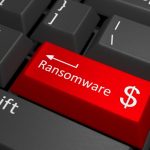
Ransomware is a growing problem, with businesses and individuals increasingly having their data encrypted and held to ransom. As with so many forms of malware, it has been PC users that have borne the brunt of attacks, but over the weekend it was Mac owners that were targeted by the KeRanger ransomware.
The malicious software first appeared on Friday and is said to be the first fully-functional example of ransomware aimed at Apple devices. KeRanger was found to be installed alongside the Transmission BitTorrent client, and while Apple has used its Gatekeeper security system to prevent further infections, if you have installed Transmission 2.90 there are steps you need to take to clean up your system.
Recent Headlines
Most Commented Stories
BetaNews, your source for breaking tech news, reviews, and in-depth reporting since 1998.
© 1998-2025 BetaNews, Inc. All Rights Reserved. About Us - Privacy Policy - Cookie Policy - Sitemap.